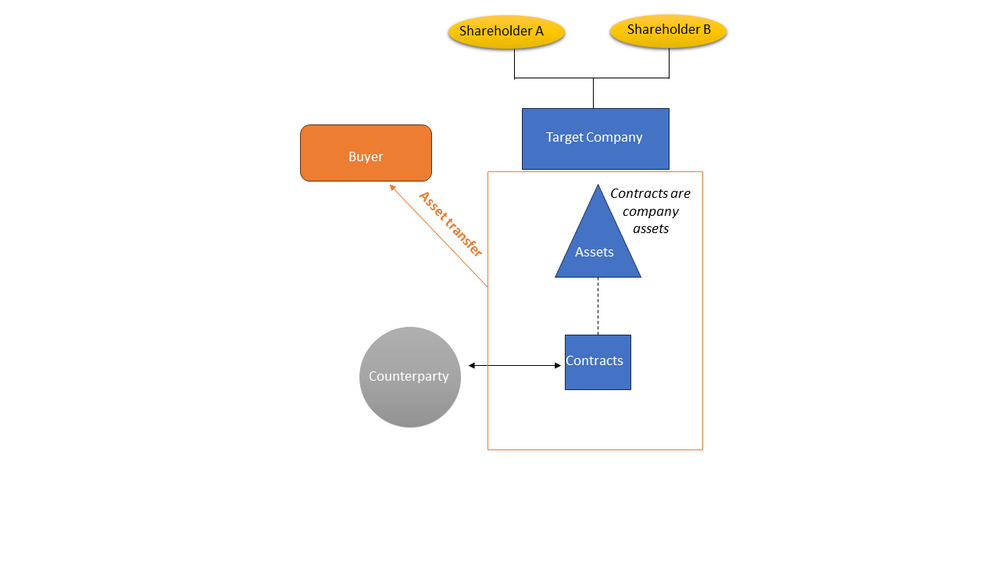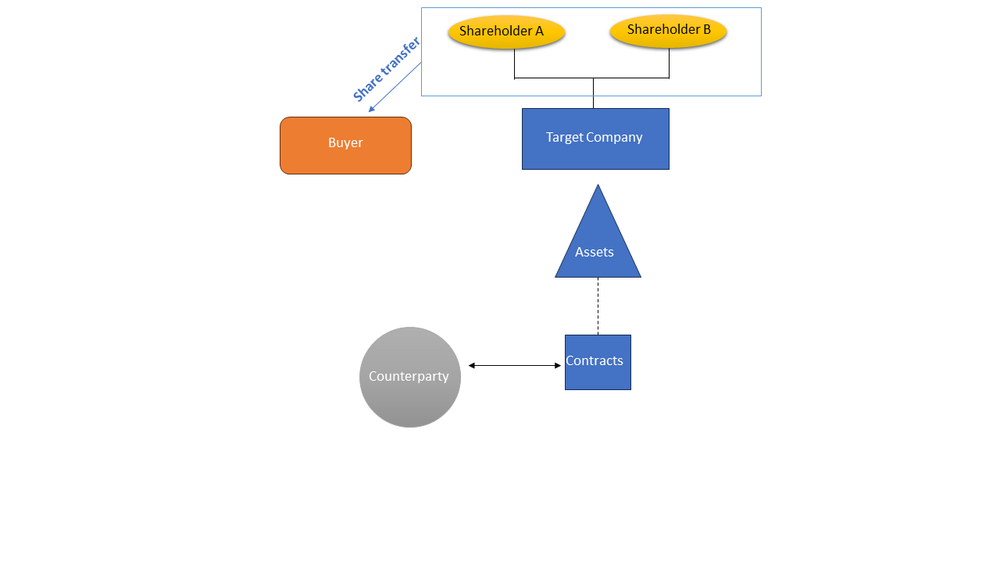Understanding M&A Transaction Types: Essential Guide for Due Diligence Success
Navigating the complex world of M&A transactions? Our comprehensive guide breaks down key transaction types, including asset purchases, stock acquisitions, mergers, and joint ventures. Learn how each structure impacts due diligence focus, legal considerations, and post-deal integration. Discover critical differences in tax implications, liability transfers, and regulatory requirements across various deal types. Essential reading for M&A professionals, corporate lawyers, and business executives planning strategic transactions. Optimize your due diligence approach, mitigate risks, and maximize deal value by aligning your strategy with the specific transaction type. Master the art of tailored due diligence with our expert insights into diverse M&A structures.
Introduction
First, ask yourself, do you know whether your client (the Buyer) is buying the assets (or business) of an entity or the shares of a target? The lawyer managing the project will normally know as they speak to the client. It’s also possible that the client has not decided yet, but it’s good to know if that is the case as you will need to consider both. It is also possible that it can change mid-way through your due diligence, so it’s important to keep up-to-date with any changes.
In this lesson we will cover the following 2 transaction types that generally speaking fall under ‘Mergers and Acquisitions’ (or ‘M&A’), asset sale and share sale.
Asset Sale
Asset (or business) sale occurs when your client (the buyer) is buying assets or a business owned by an entity (Asset Sale).

Diagram illustrating an asset sale.
Share Sale
Occurs when your client (the buyer) is buying the shares of a target company from its shareholders (Share Sale).

Diagram illustrating a share sale.
Asset Sale vs. Share Sale - What are the key differences?
The Target
A key commercial difference between the two transaction structures is in the nature of what the buyer acquires.
Asset Sale
The Buyer acquires a number of specific assets owned by the seller, plus any agreed business liabilities.
Share Sale
When the Buyer acquires the shares in a target company from its shareholders, it acquires the target company’s assets, liabilities, rights and obligations (even those the Buyer does not know about).
Sale document
Due diligence is usually completed as an essential preliminary step to negotiating contractual protections (in the form of warranties and indemnities) into the sale document.
Asset Sale
The Buyer and seller will negotiate and enter into an asset sale and purchase agreement.
Share Sale
The Buyer and seller (shareholders) will entered into an share sale and purchase agreement.
Form of transfer
Asset Sale
The target assets will need to be accurately described in the asset purchase agreement. In addition, some of the assets may need to be transferred using specific forms of transfer. For example:
- Real property is transferred by conveyance or written assignment
- Intellectual property (IP) is transferred using separate forms of transfer or assignment
- Key contracts are assigned or novated to the Buyer
Share Sale
The actual transfer of shares from the seller to the Buyer is achieved using a share transfer form and the exchange of physical share certificates (if any have been issued). All assets (including contracts) and liabilities are transferred automatically.
Consents and approvals
Consents and approvals can impact the timing of a transaction. Therefore, a key part of the legal due diligence (or LDD) is identifying whether any of the following apply.
Asset Sale
- Approvals regarding any restrictions on transfer of assets
- Pre-emption rights
- Consents from third parties to any assignment of contracts
- Regulatory approvals
Share Sale
- Board or shareholder approvals
- Approvals regarding any restrictions on transfer of shares (including pre-emption rights)
- Consent of third parties to a change of control in the target company
- Consent of regulatory authorities
Due diligence focus
Asset Sale
Focuses on the particular assets being acquired and not the target company. You will need to review the contracts and look for any restrictions on “assigning” or “transferring” contracts to the Buyer.
Share Sale
Focuses on the target company as a whole so look for consents of third parties required to a “change of control” in the target company. A change of control can be defined differently depending on the contract. Check if there is a definition of change of control to determine whether the proposed transaction is a change of control for the purposes of the specific contract.
